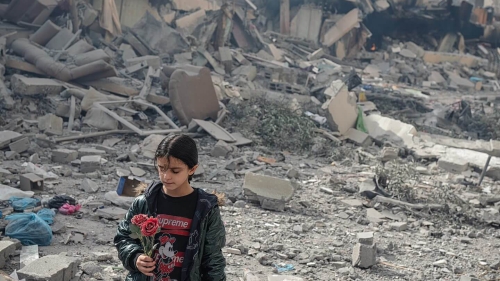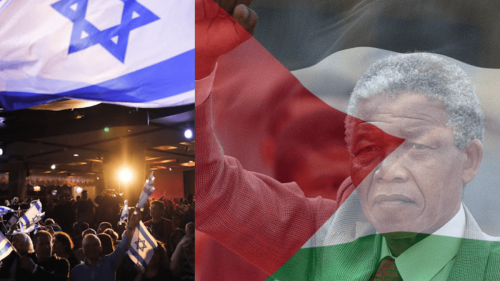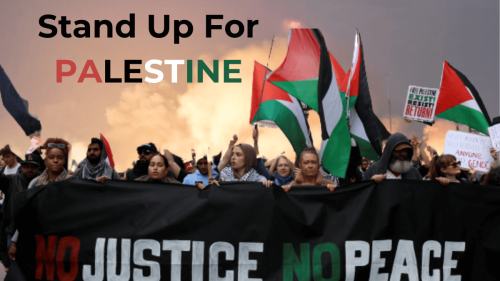Fate of Libyan Muslim To Be Determined This Week
A decision is expected this week in the case of a Libyan Muslim who faces deportation from Canada amidst claims he could face torture or execution for his religious practices.
Thirty-two year old Khaled Ghait, a self-proclaimed devout Muslim, arrived at the Northern Alberta Institute of Technology in 1997 to further his studies. He requested refugee status just one month upon his arrival, on the grounds of religious persecution by Colonel Muammar Ghaddafi's regime.
Ghait claims the Libyan authorities arrested him in 1989 and 1995 for his religious practices, including associating with people who attended mosques and grew beards. The Libyan security service released him after he denounced his association with a Muslim group.
Ghait, who was among nine Libyans selected to study overseas, did not have a beard in Libya, but grew one upon arrival in Canada and began frequenting mosques, according to a personal information statement filed with the authorities. His group leader reportedly relayed the new developments back to Libyan authorities.
Amnesty international recently urged the Canadian government to reconsider Ghait's deportation. The human rights watchdog had been monitoring nearly a dozen cases in which Libyans were sent back and then detained, tortured or executed.
"We don't know of a single case of a person who returned safely" said Alex Neve, secretary general of Amnesty International (Canada). In a report prepared on behalf of Ghait, the group noted "... he is at serious risk of being detained and subjected to serious human rights violations, including torture upon return to Libya." The report further stated people with Islamist leanings --regardless of whether they subscribed to violence - are at risk of human rights violations, including torture.
Today Ghait sits at the Metro West detention centre awaiting his fate. His lawyer has been given a verbal assurance that he will not be booked for removal until this week. The Immigration and Refugee Board rejected his refugee claim on July 5, 1999, finding that "the claimant has not met the onus of establishing, on a balance of probabilities, that he has a well- founded fear of persecution in Libya." Leave for judicial review of the tribunal's decision was dismissed and a further review was rejected for being out of time.
A risk assessment ordered by the Minister of Immigration, Elinor Caplan, came out against Ghait. However, some say the risk assessment is flawed in that it fails to take into account the difficulty refugees face in compiling and preserving evidence. Moreover, the assessment contains a number of inaccuracies such as "the wearing of a beard is not a religious requirement but rather a personal choice."
"Ghait is in great danger if he is sent back," said Khaled Tahir of the St. Catharines-based Libyan Support Group for Human Rights which is monitoring his situation. "The government in Libya does not tolerate differences."
Ghait has also gained support from the 700,000 strong Muslim and Arab communities, many of whom turned out for a protest rally several weeks ago in Edmonton, calling on the Minister to reconsider Ghait's case. Numerous other individuals and organizations including the Canadian Islamic Center, the Canadian Islamic Congress (CIC) and the Canadian-Muslim Civil Liberties Association (CMCLA) have written protest letters to their local MP's and the Immigration Minister.
The Toronto community has also hired immigration lawyer Ronald Poulton of Jackman, Waldman and Associates, to examine whether there are any further avenues of appeal. Poulton has filed an application for judicial review of the risk assessment prepared by Immigration authorities and is ready to file for a stay of proceeding as soon as a deportation date is set, according to information obtained by iviews.com. Poulton also plans to launch a constitutional challenge of his deportation if it is carried out without an updated risk assessment.
Ghait is among many in Canada who face deportation despite the fact many face torture or even death in their homeland. There are currently 270 Chinese refugees sitting in Canadian detention centers awaiting deportation. In early May, Immigration authorities carried out the largest mass deportation in Canadian history without objection from the general public. The whereabouts of these 90 Chinese refugees put on board an Airbus-310 at a British Columbia airport and deported back to China are unknown.
The public's apathy reflects a growing anti-refugee sentiment in the country. This development is the result of the emergence of racism and xenophobia. "Shipping innocent Chinese back to China is a symbolic gesture against immigration," wrote Terrence Corcoran of the National Post. The overwhelming view among Canadians is that "immigrants steal jobs, refugees become state parasites, our culture is at risk," he wrote in a recent article.
A new bill introduced by the Liberal government earlier this year will make it even harder for refugees. Canada has moved away from a humane approach to one that the Inter-Church Committee for Refugees has called the "deterrence and detention" approach developed and implemented by a growing number of Western governments since the 1980s. The Committee feels this is contrary to international human rights standards and has made clear its opposition.
Canada spends about $500-million a year aiding an estimated 25,000 refugee claimants, but critics point to a number of serious concerns. For one, the system does not appear to show concern for the fate of deportees. In an unexpected move, the Federal Court of Appeal ruled earlier this year that Canada has the right to deport individuals even if they could face torture upon return to their home country.
Manickavasagam Suresh, who was ordered deported despite the court's finding that he may be tortured upon return to Sri Lanka, was given leave this week to appeal this decision to the Supreme Court. The decision of the Supreme Court in this case will have a great impact on the cases of many refugees who request asylum.
Supporters of deportees at risk, including Ghait, have suggested that one way to decrease the chances of putting people's life in danger is to send them to a safe third country. David Kilgour the Canadian Secretary of State (Latin America and Africa) and a Member of Parliament, has intervened on behalf of Ghait and specifically asked that he be sent to a third country. The authorities have not seriously considered this option in the past.
"Given the situation highlighted by Amnesty, it would be unconscionable for the Canadian government to recklessly proceed with Mr. Ghait's deportation," said Naeem Siddiqui of the CMCLA, " It would clearly be in the best interests of Mr. Ghait's safety and Canada's reputation as a champion of human rights for the Minister of Immigration to revisit this case."
Information on how you can help Khaled Ghait is available at http://www.cmcla.org.
Faisal Kutty is a Toronto-based lawyer and writer. He is also a columnist for the Washington Report on Middle East Affairs (http//www.washington-report.org).

















